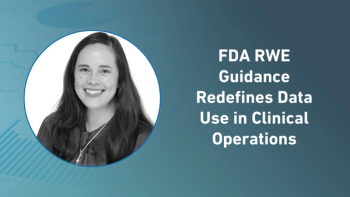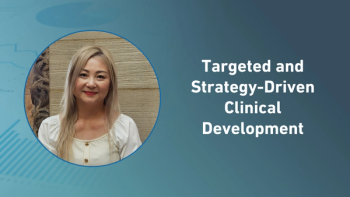
Early Planning Assures Better Outcomes
The early implementation of post authorization safety studies (PASS) will translate to efficiencies in pre-appoval research. These benefits allow for faster approval and wider patient access to potentially life saving therapies.
Post-Authorization Study Becomes a Crucial Part of Drug Development Design
The European pharmacovigilance legislation that came into effect in 2012 introduced ground-breaking modifications affecting all fields of safety management. Since 2012 fundamental changes have been implemented, creating at the same time the space for innovative approaches and solutions in pharmacovigilance. Good Pharmacovigilance Practice (GVP) guidelines are still evolving dynamically under EMA experts’ regular reviews and public consultations with the stakeholders. GVP Module VIII is a fundamental guideline for post-authorization studies (PAS). In October 2015, public consultations were closed for Revision 2 of the guideline, with a final version anticipated in the near future. Together with the increase of pharmacovigilance regulatory burden, the growing role of post-authorization safety studies (PASS) and requirements regarding PASS quality, transparency and credibility of data is clearly visible. Regardless of the type of PAS, conducted voluntarily or imposed by authorities, the quality requirements are becoming more similar and harmonized. GVP Module VIII presents almost the same recommendations for the protocol, study report, PASS register applicable for all PAS studies in order to increase the scientific value and usefulness of real-life data. Extensive Phase III clinical research has limitations because the safety and efficacy data collected is in pre-specified, rather homogenous patient populations, enrolled based on strict inclusion/exclusion criteria, who are treated and observed within limited timeframes. Such measures are taken to decrease the variability of patient’s response and obtain lucid and consistent data required to facilitate the marketing approval. Only during long-term observation in a post-approval, real-life setting it is realizable to gather and analyze cumulated, unbiased real-world evidences and make sure that actual benefits of therapy outweigh the risk. This is the reason why PAS studies are becoming vital, especially in biological medicinal products development. Additional monitoring in real-life allows for observation of the long-term safety and immunogenicity, interactions between different products, effects of switching between similar biological therapies, as well as safety and efficacy assessment in other populations not observed during clinical research. Since 2013, EMA has published the list of medicinal products under additional monitoring, which illustrates the dynamic growth of new products on the European market and simultaneous increase of products under additional monitoring. Within less than three years, the number of products under additional monitoring increased from 100 to almost 300 in EU. One-fourth of listed medicines are under PASS. (
http://www.ema.europa.eu/docs/en_GB/document_library/Other/2013/04/WC500142453.pdf
). Currently biological drug development is the fastest growing segment of the healthcare industry. For vast majority of biopharmaceuticals, the post-authorization long-term observation is an essential condition for marketing approval. Increasing requirements regarding PAS trigger additional challenges and difficulties, however this process evolves in parallel with the regulatory support. Current flexible regulatory approaches facilitate fast and effective marketing approval. The tendency to streamline and shorten the time of pre-approval development phase for the benefit of post-approval observation is becoming more and more prevalent. One example of EMA’s initiative to facilitate the creation of a better design of the PASS is a 12-month pilot concerning scientific advice procedure launched in July 2015 under the Scientific Advice Working Party (SAWP) and the Pharmacovigilance Risk Assessment Committee (PRAC). Scientific advice procedure is voluntary, however may be highly valuable for PASS protocols, which require expert advice, solutions for difficult issues or confirmation for innovative methodologies. The goal of this pilot is to encourage scientific advice on safety studies (for nationally as well as centrally authorized products) to improve the study design for further development as well as support proactive pharmacovigilance planning. Post-authorization safety studies (PASS) are becoming an integral part of medicines development. Planning the design of PASS research at early phases of clinical trial will translate into significant time- and cost-efficiency of pre-approval research. Decreased time and lower costs of the pre-approval research allow for faster approval and accelerated and wider patients’ access to advanced therapies saving life. Additionally, the marketing approval holder is still able to conduct further development of the product in other sub-populations, different indications using other dosage regimens or/and formulations during post-approval research. Inconvertible benefits for manufacturers, patients as well as health authorities resulting from shortening the pre-approval development phase may be easily accessible only if the PAS design is assessed at the time of early phases of clinical development planning, not at the time of marketing approval application. Close cooperation between the manufacturer, relevant regulatory authorities and medical practitioners is essential for delivering this mutual success. The process of real world evidences collection and assessment remains currently a broad area for innovative solutions, however advanced ideas are of great value only when translated into successful outcome. Magdalena Matusiak leads the Pharmacovigilance Team at KCR, Contract Research Organization.
www.kcrcro.com
.
Newsletter
Stay current in clinical research with Applied Clinical Trials, providing expert insights, regulatory updates, and practical strategies for successful clinical trial design and execution.




